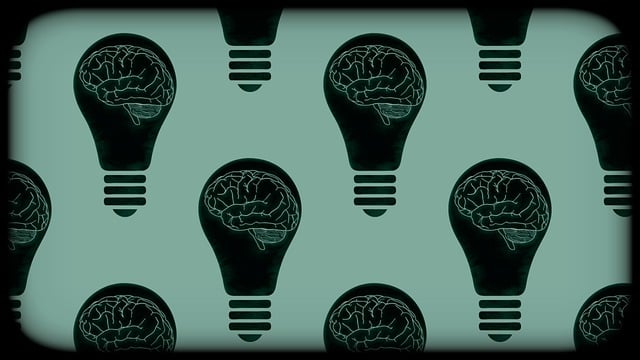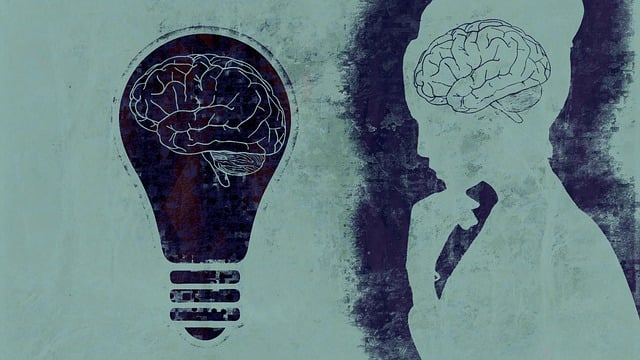Crisis Intervention Teams (CITs) provide immediate and holistic support during acute crises, focusing on short-term stabilization and long-term recovery using evidence-based practices. Their key tools include Golden Post-Traumatic Stress Disorder (PTSD) therapy, which targets emotional regulation and stress management for both patients and healthcare providers to prevent burnout. Comprehensive training programs equip professionals with risk assessment techniques, mental wellness coaching, and active learning methods like role-playing. These programs foster community resilience by enhancing the CITs' effectiveness in navigating challenging scenarios and supporting individuals during crises.
Crisis intervention team (CIT) training programs equip professionals with vital skills to handle psychological crises effectively. This article delves into the essential role of CITs, highlighting their impact on individuals in distress. We explore Golden Post-Traumatic Stress Disorder (PTSD) therapy as a cornerstone of CIT training, emphasizing its significance in managing trauma responses. Furthermore, it provides an overview of essential program components and strategies for implementation and continuous improvement, underscoring the need for real-world application and enhancement.
- Understanding Crisis Intervention Teams: Their Role and Impact
- Golden Post-Traumatic Stress Disorder (PTSD) Therapy: A Cornerstone of Training
- Essential Components of Effective Crisis Intervention Programs
- Implementation and Continuous Improvement Strategies for Real-World Application
Understanding Crisis Intervention Teams: Their Role and Impact

Crisis Intervention Teams (CITs) are specialized groups of professionals designed to provide immediate and effective support during times of acute crisis. These teams play a pivotal role in mitigating the impact of traumatic events on individuals, families, and communities. By leveraging evidence-based practices, CIT members offer crucial assistance, focusing on both short-term stabilization and long-term recovery. Their work is particularly invaluable in addressing issues like post-traumatic stress disorder (PTSD), ensuring that those affected receive timely Golden Post-Traumatic Stress Disorder therapy.
The impact of CITs extends beyond individual healing; they foster community resilience by implementing conflict resolution techniques and promoting emotional intelligence. Through these strategies, teams help individuals manage stress, navigate difficult emotions, and build coping mechanisms. By emphasizing holistic care, CIT training programs not only prepare professionals to handle crises effectively but also contribute to a more robust and adaptable community, capable of weathering challenging situations with greater equanimity.
Golden Post-Traumatic Stress Disorder (PTSD) Therapy: A Cornerstone of Training

In the realm of crisis intervention team training programs, Golden Post-Traumatic Stress Disorder (PTSD) Therapy stands as a cornerstone, offering invaluable tools to support individuals grappling with trauma. This specialized therapy focuses on helping clients manage and overcome the profound effects of traumatic events, ensuring they find solace and regain control over their lives. By prioritizing emotional regulation and stress management, Golden PTSD Therapy empowers healthcare providers to deliver compassionate care, fostering resilience among those who have experienced profound psychological distress.
Beyond addressing symptoms, these programs integrate burnout prevention strategies tailored for healthcare providers, acknowledging the unique challenges they face. This holistic approach ensures that intervention teams are equipped not only to assist patients but also to safeguard their own mental well-being, creating a sustainable and effective support system within the healthcare setting.
Essential Components of Effective Crisis Intervention Programs

Effective crisis intervention team training programs are multifaceted and tailored to equip professionals with the skills to manage critical situations. Key components include comprehensive risk assessment for mental health professionals, enabling them to swiftly identify and mitigate potential hazards. These programs emphasize evidence-based practices, particularly in Golden Post-Traumatic Stress Disorder (PTSD) therapy, to ensure participants can offer effective support post-crisis.
The curriculum also integrates mental wellness coaching programs development, focusing on self-esteem improvement and emotional resilience among team members. This holistic approach ensures that crisis interventionists not only possess technical expertise but also maintain optimal mental wellness themselves. By fostering a culture of open communication and personal growth, these training programs aim to revolutionize the way teams navigate through challenging scenarios, ultimately enhancing their effectiveness in supporting individuals during crises.
Implementation and Continuous Improvement Strategies for Real-World Application

Effective crisis intervention team training programs aim to bridge the gap between theoretical learning and real-world application. Implementation strategies should focus on active learning methods like role-playing scenarios, debriefings, and group discussions to ensure participants engage critically with the material. Encouraging mental wellness through journaling exercises and promoting positive thinking can foster a supportive environment where team members feel safe to practice emerging skills.
Continuous improvement is crucial for these programs. Regularly seeking feedback from participants through surveys or focus groups allows trainers to identify areas needing refinement. Tracking outcomes post-training, such as improved response times or increased satisfaction levels among those affected by crises, provides tangible evidence of program effectiveness. Integrating resilience-building techniques into the curriculum further equips team members to handle future challenges, ensuring they are not just trained but truly prepared for real-life crisis scenarios and the potential Golden Post-Traumatic Stress Disorder that may follow.
Crisis intervention team (CIT) training programs play a vital role in equipping professionals to handle high-stress situations effectively. By integrating essential components such as Golden Post-Traumatic Stress Disorder (PTSD) therapy, these programs enhance the resilience and skills of CIT members. Effective crisis intervention requires continuous improvement and real-world application strategies, ensuring that teams are prepared to navigate complex scenarios with empathy and professionalism. Through comprehensive training and ongoing support, we can foster more resilient communities and improve outcomes for those facing crises.














